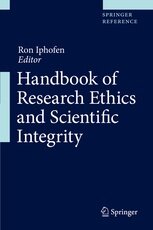-
Faculty of Arts and HumanitiesDean's Office, Faculty of Arts and HumanitiesJakobi 2 ruumid 116–121, 51005 Tartu linn, EST0Institute of History and ArchaeologyJakobi 2 51005 Tartu linn, Tartu linn, Tartumaa EST0Institute of Estonian and General LinguisticsJakobi 2, IV korrus 51005 Tartu linn, Tartu linn, Tartumaa EST0Institute of Philosophy and SemioticsJakobi 2, III korrus, ruumid 302-337 51005 Tartu linn, Tartu linn, Tartumaa EST0Institute of Cultural ResearchÜlikooli 16 51003 Tartu linn, Tartu linn, Tartumaa EST0Institute of Foreign Languages and CulturesLossi 3 51003 Tartu linn, Tartu linn, Tartumaa EST0School of Theology and Religious StudiesÜlikooli 18 50090 Tartu linn, Tartu linn, Tartumaa EST0Viljandi Culture AcademyPosti 1 71004 Viljandi linn, Viljandimaa EST0Professors emeriti, Faculty of Arts and Humanities0Associate Professors emeriti, Faculty of Arts and Humanities0Faculty of Social SciencesDean's Office, Faculty of Social SciencesLossi 36 51003 Tartu linn, Tartu linn, Tartumaa EST0Institute of EducationJakobi 5 51005 Tartu linn, Tartu linn, Tartumaa EST0Johan Skytte Institute of Political StudiesLossi 36, ruum 301 51003 Tartu linn, Tartu linn, Tartumaa EST0School of Economics and Business AdministrationNarva mnt 18 51009 Tartu linn, Tartu linn, Tartumaa EST0Institute of PsychologyNäituse 2 50409 Tartu linn, Tartu linn, Tartumaa EST0School of LawNäituse 20 - 324 50409 Tartu linn, Tartu linn, Tartumaa EST0Institute of Social StudiesLossi 36 51003 Tartu linn, Tartu linn, Tartumaa EST0Narva CollegeRaekoja plats 2 20307 Narva linn, Ida-Virumaa EST0Pärnu CollegeRingi 35 80012 Pärnu linn, Pärnu linn, Pärnumaa EST0Professors emeriti, Faculty of Social Sciences0Associate Professors emeriti, Faculty of Social Sciences0Faculty of MedicineDean's Office, Faculty of MedicineRavila 19 50411 Tartu linn, Tartu linn, Tartumaa ESTInstitute of Biomedicine and Translational MedicineBiomeedikum, Ravila 19 50411 Tartu linn, Tartu linn, Tartumaa ESTInstitute of PharmacyNooruse 1 50411 Tartu linn, Tartu linn, Tartumaa ESTInstitute of DentistryL. Puusepa 1a 50406 Tartu linn, Tartu linn, Tartumaa ESTInstitute of Clinical MedicineL. Puusepa 8 50406 Tartu linn, Tartu linn, Tartumaa ESTInstitute of Family Medicine and Public HealthRavila 19 50411 Tartu linn, Tartu linn, Tartumaa ESTInstitute of Sport Sciences and PhysiotherapyUjula 4 51008 Tartu linn, Tartu linn, Tartumaa ESTProfessors emeriti, Faculty of Medicine0Associate Professors emeriti, Faculty of Medicine0Faculty of Science and TechnologyDean's Office, Faculty of Science and TechnologyVanemuise 46 - 208 51003 Tartu linn, Tartu linn, Tartumaa ESTInstitute of Computer ScienceNarva mnt 18 51009 Tartu linn, Tartu linn, Tartumaa ESTInstitute of GenomicsRiia 23b/2 51010 Tartu linn, Tartu linn, Tartumaa ESTEstonian Marine Institute0Institute of PhysicsInstitute of ChemistryRavila 14a 50411 Tartu linn, Tartu linn, Tartumaa EST0Institute of Mathematics and StatisticsNarva mnt 18 51009 Tartu linn, Tartu linn, Tartumaa EST0Institute of Molecular and Cell BiologyRiia 23, 23b - 134 51010 Tartu linn, Tartu linn, Tartumaa ESTTartu ObservatoryObservatooriumi 1 61602 Tõravere alevik, Nõo vald, Tartumaa EST0Institute of TechnologyNooruse 1 50411 Tartu linn, Tartu linn, Tartumaa ESTInstitute of Ecology and Earth SciencesJ. Liivi tn 2 50409 Tartu linn, Tartu linn, Tartumaa ESTProfessors emeriti, Faculty of Science and Technology0Associate Professors emeriti, Faculty of Science and Technology0Institute of BioengineeringArea of Academic SecretaryHuman Resources OfficeUppsala 6, Lossi 36 51003 Tartu linn, Tartu linn, Tartumaa EST0Area of Head of FinanceFinance Office0Area of Director of AdministrationInformation Technology Office0Administrative OfficeÜlikooli 17 (III korrus) 51005 Tartu linn, Tartu linn, Tartumaa EST0Estates Office0Marketing and Communication OfficeÜlikooli 18, ruumid 102, 104, 209, 210 50090 Tartu linn, Tartu linn, Tartumaa EST0Area of Vice Rector for Academic AffairsOffice of Academic AffairsUniversity of Tartu Youth AcademyUppsala 10 51003 Tartu linn, Tartu linn, Tartumaa EST0Student Union OfficeÜlikooli 18b 51005 Tartu linn, Tartu linn, Tartumaa EST0Centre for Learning and TeachingArea of Vice Rector for ResearchUniversity of Tartu LibraryW. Struve 1 50091 Tartu linn, Tartu linn, Tartumaa EST0Grant OfficeArea of Vice Rector for DevelopmentCentre for Entrepreneurship and InnovationNarva mnt 18 51009 Tartu linn, Tartu linn, Tartumaa EST0University of Tartu Natural History Museum and Botanical GardenVanemuise 46 51003 Tartu linn, Tartu linn, Tartumaa EST0International Cooperation and Protocol Office0University of Tartu MuseumLossi 25 51003 Tartu linn, Tartu linn, Tartumaa EST0Area of RectorRector's Strategy OfficeInternal Audit Office
New handbook about research ethics and integrity published articles from Centre for Ethics’ junior research fellows
Articles about informed consent and codes of ethics, written by junior research fellows and the head of Centre for Ethics, University of Tartu will be published in an upcoming Springer book “Handbook of Research Ethics and Scientific Integrity“.
"Valid informed consent is considered key to ethical research, there is no agreement on what constitutes adequate informed consent. Problems ensue firstly from the circumstance that a principle adopted in one area of inquiry (e.g. biomedicine) cannot be extended literally to other areas of science," is written in the introduction to the article.
Head of the Centre for Ethics Prof Margit Sutrop and junior research fellow Kristi Lõuk explain in their article „Informed Consent and Ethical Research“ the origin of the concept of informed consent, what it consists of, and what forms it can take. The authors analyse "what has caused shifts in the understanding of the informed consent principle: how much is due to advancements in science and technology and how much to changing ethical frameworks". Why it is important to develop a contextual approach by taking into account differences in research fields as well as types of research, is also discussed. (Sutrop & Lõuk, 2020)
In their article “Research Ethics Codes and Guidelines “ Prof Sutrop and junior research fellows Mari-Liisa Parder and Marten Juurik give an overview of codes of ethics and highlight the obstacles and solutions to make codes of ethics work better. For example, it is argued that the process of drafting codes of ethics should be inclusive. To engage people real-life cases should be discussed for clarifying implicit values. The authors also point out, that "declared and actual values should be in coherence both in the leadership of the organization and organizational culture." (Sutrop, Parder & Juurik, 2020)
In the abstract, the authors write: "Codes of ethics for scientists are often written in reaction to misconduct cases. However, the sudden boom in codes of ethics is also related to growing pressures upon scientists and the conflicting duties they face. Solutions to the issue of vast number of codes and guidelines – creating a few universal general codes for research or harmonization of existing documents – are also both problematic. A universal code makes sacrifices on the level of content to gain acceptance internationally, and differences in values will continue to pose ethical dilemmas and conflict." (Sutrop, Parder & Juurik, 2020)
The composers of the handbook write, that the book gives an overview about the current state of research ethics and scientific integrity. It contains most up-to-date information about topics, such as privacy, data management, informed consent, fraud, and plagiarism. The book “Handbook of Research Ethics and Scientific Integrity” is published in November 2020.
For more information about the Handbook, visit Springer’s homepage.
Photo on th fist page: FreeDigitalPhotos.net
References:
Sutrop M., Lõuk K. (2020) Informed Consent and Ethical Research. In: Iphofen R. (eds) Handbook of Research Ethics and Scientific Integrity. Springer, Cham.
Sutrop M., Parder ML., Juurik M. (2020) Research Ethics Codes and Guidelines. In: Iphofen R. (eds) Handbook of Research Ethics and Scientific Integrity. Springer, Cham.
Read more similar news




